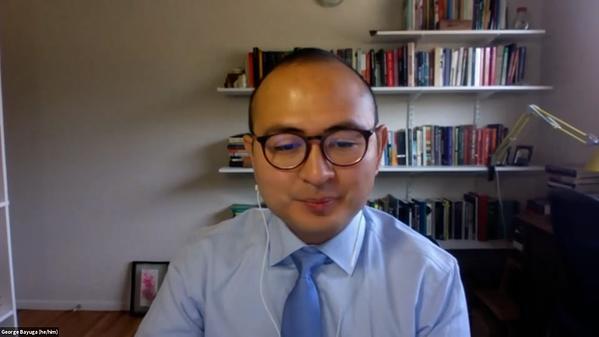Would you like to see your presentation here, made available to a global audience of researchers?
Add your own presentation or have us affordably record your next conference.
keywords:
public anthropology
higher education
interdisciplinary
Training Anthropologists for A Changing World: Meeting the Challenges of Today and Tomorrow The COVID-19 pandemic increased our attention to the moral and intellectual stakes underlying anthropologists’ training. Worldwide institutions of higher learning asked: How can we help? Anthropologists researched the spread and impact of COVID, strategized reducing vaccine hesitancy, engaged in discussions on reopening economies and communities, and envisioned altered futures. At the same time higher education is being challenged by COVID related decreases in enrollment, funding losses and difficulties and opportunities, from virtual instruction. For anthropology COVID posed challenges to key methodologies. These changes pose challenges for doctoral education. Academic positions in anthropology are diminishing leading to the majority of future anthropologists working outside of academia or teaching in other fields. We need to provide high quality doctoral preparation for these professional opportunities Anthropology’s potential contributions to formulating responses to the crisis and the social and cultural shifts it is causing are vast. Such dramatic change encourages us to ask whether we are training our students to address these challenges and participate in these changes as anthropologists. Significant changes in the structure and content of doctoral training are required. These include a recognition of the skills and expertise needed to train students to address these challenges, establishment of appropriate training goals and assessments, and the valuing of accomplishments achieved in this area. In particular the academic reward structure must recognize different kinds of achievements in training, practice, and research to attract and retain expert teacher-mentors. This expansion of the framework of knowledge, skills needed, and criteria for success will contribute to decolonizing efforts to expanding diversity, inclusion, and equity in the discipline. Needed training will require faculty skilled in interdisciplinary collaborations, mixed methods, CBPR, ethics, and team research. To make our knowledge effective, anthropologists collaborating on interdisciplinary teams must be able to convey anthropological concepts and approaches to a wide range of audiences and to work effectively across disciplines and in multiple kinds of non-academic settings. To discuss this challenge participants in the roundtable represent a range of relevant voices: Luke Bergmann, anthropologist-social worker, Director of San Diego County Behavioral Health Services; Sherylyn Briller, SfAA Past President; Daniel Ginsberg, linguistic anthropologist of education and AAA Director of Education and Professional Practice; Jacquelyn Heuer, applied anthropology doctoral candidate; David Himmelgreen, applied bio-anthropologist and Founding Director of the USF Center for the Advancement of Food Security and Healthy Communities; Andrew Newman, urban anthropologist, T-RUST faculty (Transformative Research in Urban Sustainability Training); Nancy Romero-Daza applied medical anthropologist; Andrea Sankar, medical anthropologist, social work and anthropology (SWAN) and T-RUST faculty; Erin Stanley, Climate Equity Program Manager at Eastside Community Network and SWAN doctoral student. The COVID pandemic has provided an opportunity for anthropologists to further expand their praxis beyond academic and scholarly pursuits to engage enormous social challenges facing the world. We ask: What can anthropology contribute, how can we effectively make those contributions, and how do we train our doctoral students to do so?

